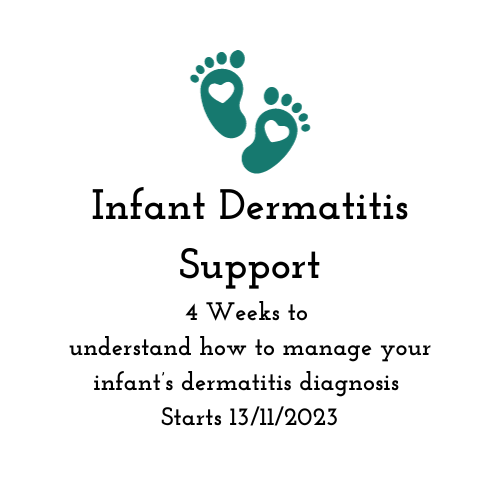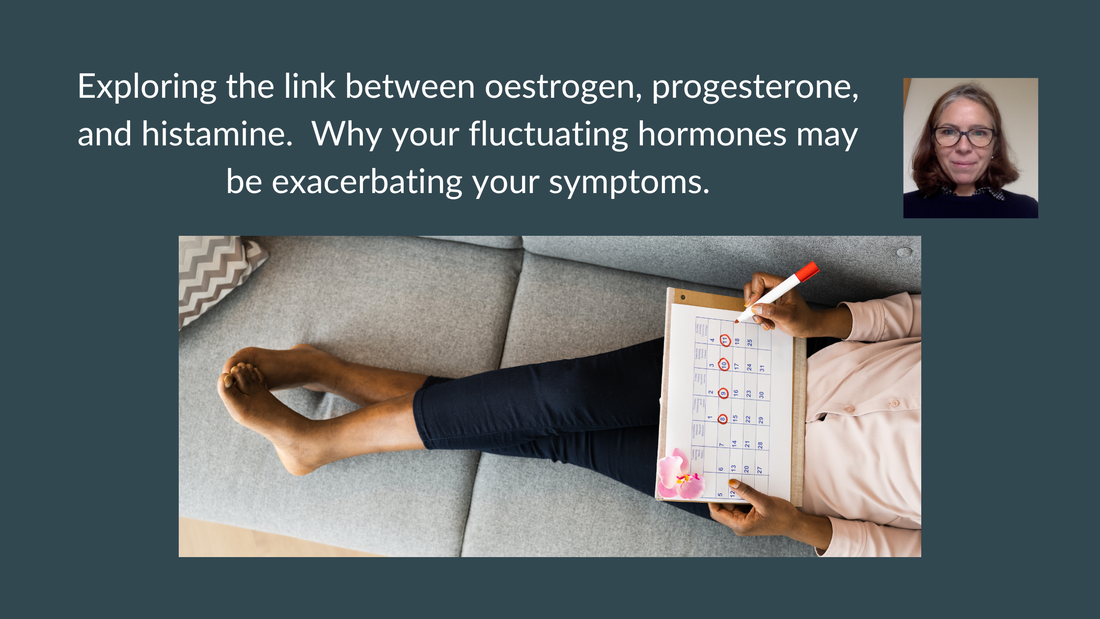ARTICLE Categories
All
|
|
www.facebook.com/groups/417030973601268This weeks’ article comes thanks to one of my members in my Free Facebook group for carers of children with gut and/or skin issues. She asked for exactly what it says in the title. Ideas for gently supporting gut health whilst appealing to a fussy eater.
At first glance it may appear that this article is only aimed at children, but it isn’t. You would be surprised how many adults have quite distinctive likes and dislikes when it comes to food. So, this is a great topic to tackle because it effects so many of us, whether we are a parent of a fussy eater, or whether we aren’t that keen on a few foods ourselves. Last thing before I delve properly into the topic. My belief is that fussy eaters are born and not made and so I want to take any of notion of guilt straight out of the equation. This is the little anecdote that brought me to that conclusion: My first-born loves all food, a lot. As an infant/young child he was never happier than when he was eating, and we were amazed by how adventurous he was, so young. I of course, as a first-time parent, foolishly thought that this had something to do with my parenting skills. As I was soon to find out, my son was born loving food, it had absolutely diddly squat to do with me. My daughter then arrived, and if I was a suspicious sort, I would think that she came specifically to teach me a lesson. Food didn’t interest her. She didn’t like lumps right from the start – baby porridge was a no-no, she just spat it out. She would only eat vegetables that came from tins, and she could outlast my patience at the table, by a considerable mile. She was born suspicious of most foods and there was nothing I could do to change it. Well, I did manage, but it took years. She is part of the reason I retrained as a Registered Nutritional Therapy Practitioner, I needed to know more, so I could feed her better. You’ll be pleased to hear that she now eats an amazing variety of foods and cooks for most of her friends. She still doesn’t like yogurts with ‘bits’, however. Anyway, enough digression. Today’s article is all about which nutrients are helpful to support gut health generally and some tips on how to subtlety incorporate them in the diet so that it slips past the most vigilant of fussy eaters. A quick overview of our digestive system and what it needs for health. Before we get into the nutrients and tips, just a quick overview of the gut. The gut runs all the way from our mouth to our bottom. Digestion starts in the mouth, specifically for carbohydrates (bread, pasta, flour-based products, potatoes etc), once swallowed the food passes via the oesophagus and is drip fed into the stomach. It then passes through into the small intestine, where most digestion of nutrients takes place, before moving into the large intestine where water is removed, and our gut bacteria continues to break down matter and synthesises certain vitamins. We then finally pass what’s left as a stool, and the process is complete. The whole process is managed thanks to peristalsis, a wave like action that helps propel the food to each area of the digestive stages. Many clients talk about gut problems, but that term is a little vague as issues can occur at any of the stages. We may eat too quickly and not chew enough so that the food is too large, and we experience a sensation that the food is hard to digest. We can have issues with our oesophagus so that some of the stomach acid comes up further than it should, and we experience reflux. We can have too much or even too little stomach acid so our foods, most commonly proteins, aren’t adequately broken down. We can have an issue with digestive enzymes or bile acids. Bacteria can come up to the small intestine, where they shouldn’t be and trigger small intestinal bowel overgrowth (SIBO). We can have an unbalanced gut bacteria population and constipation in the large intestine. So which nutrients are good for our digestive system? Here is a list of the nutrients, the tips on how to incorporate them will follow!
How to slip these ingredients into your fussy eater’s diet.
Sign up for my news to receive the published articles straight to your inbox. Read more by clicking below to see my previously published articles:
I’m Jessica Fonteneau, the Eczema and Digestive Health Nutrition Expert. I’ve worked with hundreds of clients to help them change their diets, better manage their flares, and find relief. My vocation is to help those with eczema and digestive issues, because I have suffered with these interlinked conditions since I was 6 months old, and I truly know what it is like to experience these debilitating conditions. Every client I have ever worked with has their own triggers and ideal nutrition. There is no such thing as ‘one-size-fits-all’. Whether you work with me one-to-one or use my guided tools, my objective is to help you uncover what works best for you, so that you take back control and experience relief. My guided programmes are only suitable for adults as children have very specific nutrition requirements. I do, however, work with many child clients as part of my clinic. I also offer two free communities for adults caring for children with eczema and digestive symptoms, feel free to come and join us and get some well-deserved support.
To easily keep up with my articles, masterclasses, ebooks and online programmes and receive exclusive access to early bird offers, sign-up to my newsletter. Interested in what I do and who I am? Go to my website: www.jessicafonteneaunutrition.com
0 Comments
There comes a time in most parent’s life when you are faced with your child complaining of stomach-ache and asking to stay home from school. I know, it happened to me frequently with my youngest daughter.
It can be so hard to judge, especially with younger children, whether the issue is serious or simply an appeal for a day off. My daughter has admitted that some of those earlier episodes were a case of her just wanting to stay home rather than face a test, but others were genuine. When her stomach aches started to interfere with her high-level sport practice, which she loved, I knew for sure that things weren’t right, and I consulted our GP who referred her to a gastroenterologist. In her case, all was well, but if you have any doubt about your child’s symptoms, consult your own medical practitioner. Whilst children’s stomach aches can be triggered by many things, for some it comes from Paediatric Irritable Bowel Syndrome (IBS) and this article will give an overview on:
Understanding paediatric IBS IBS, whether paediatric or adult, is a functional gastrointestinal disorder. That means that there is no physical damage to the gut, but rather a disorder in how the digestive system is working, which can lead to a range of distressing symptoms. Paediatric IBS often develops during adolescence, but some children develop the condition at a younger age. It is thought that up to 15% of the paediatric population suffers from this condition. The name Irritable Bowel Syndrome (IBS) can easily be confused with Irritable Bowel Disease (IBD) which encompasses Crohn’s and Ulcerative Colitis, but it is a completely different condition. Symptoms of paediatric IBS
Diagnosing paediatric IBS Any children with persistent symptoms should see their medical practitioner. It is worth being aware that diagnosing paediatric IBS can be challenging, because it overlaps with other gastrointestinal disorders, and it is usually diagnosed following a process of elimination via a combination of medical history, physical examination, and tests. If your family has any history of gastrointestinal disorders, then it is essential to share that information with your medical practitioner. Tips for how to support your child diagnosed with IBS.
IBS in children is a real, but often misunderstood condition that can have a significant impact on a child’s daily life. Recognising the symptoms, seeking healthcare advice for proper diagnosis and nutrition support, and introducing some anxiety relief techniques are crucial to help improve quality of life. Sign up for my news to receive the published articles straight to your inbox. Read more by clicking below to see my previously published articles:
I’m Jessica Fonteneau, the Eczema and Digestive Health Nutrition Expert. I’ve worked with hundreds of clients to help them change their diets, better manage their flares, and find relief. My vocation is to help those with eczema and digestive issues, because I have suffered with these interlinked conditions since I was 6 months old, and I truly know what it is like to experience these debilitating conditions. Every client I have ever worked with has their own triggers and ideal nutrition. There is no such thing as ‘one-size-fits-all’. Whether you work with me one-to-one or use my guided tools, my objective is to help you uncover what works best for you, so that you take back control and experience relief. My guided programmes are only suitable for adults as children have very specific nutrition requirements. I do, however, work with many child clients as part of my clinic. I also offer two free communities for adults caring for children with eczema and digestive symptoms, feel free to come and join us and get some well-deserved support.
To easily keep up with my articles, masterclasses, ebooks and online programmes and receive exclusive access to early bird offers, sign-up to my newsletter. It’s a fascinating fact that before puberty, if you are born male, you are more at risk from childhood allergies, but that after puberty those born female are more likely to suffer from conditions relating to immune function including allergies and autoimmune conditions. (1,2)
It’s also reported that many people experience an onset, worsening or sometimes remission from eczema and IBS symptoms at certain times in the menstrual cycle or life stage e.g. pregnancy and menopause. Have you ever considered why? Studies have hinted at the interaction of the neurotransmitter, histamine, and the hormones, oestrogen, and progesterone. Today’s article, the fourth in my ‘histamine’ series, explores this emerging topic and includes:
Histamine, a quick overview Histamine is a compound that acts as both a neurotransmitter and an immune system messenger. It is responsible for a range of roles, including immune response, vasodilation (the widening of the blood vessels), and stomach acid production. Whilst histamine is vital for protecting the bodies against infection and supporting wound healing, too much histamine can lead to various health issues. For more detail on how this might link to digestive health, skin conditions or autoimmunity, please see my previous articles, links below. Oestrogen, progesterone, and the menstrual cycle The menstrual cycle is an intricate ballet of hormonal fluctuations, depending on distinct phases, going from menstruation to the follicular phase, ovulation and finally the luteal phase. During this cycle levels of sex hormones, including oestrogen, progesterone, luteinising hormone, and follicular stimulating hormone, rise and fall with the aim to prepare the body for pregnancy. Oestrogen is a group of sex hormones (estrone, oestradiol and estriol) that plays a key role in the development and functioning of the female reproductive system. Less well considered is the fact that oestrogen also impacts bone health, cardiovascular function, cognitive function, and the modulation of the immune system. Oestrogen levels are at their highest during the follicular phase, between the first day of a period and the next ovulation (days 1-14). Oestrogen is primarily excreted from the body following detoxification via the liver. Some oestrogen is, however, recycled and remains in circulation which may lead to oestrogen levels being proportionately higher at some times. Progesterone, another vital hormone, works in step with oestrogen to regulate the menstrual cycle and prepare the body for a potential pregnancy. It also plays a role in thermoregulation (cooling you down or keeping your warm), skin health, brain function, and vitally has anti-inflammatory actions. Progesterone levels are highest during the Luteal phase of your cycle. This is the phase directly after ovulation which lasts until your next cycle begins. Oestrogen, progesterone, and histamine, how might they interact? Research suggests that histamine levels are influenced by the hormonal fluctuations that happen during the menstrual cycle. Oestrogen has been demonstrated to encourage release of histamine from mast cells. This may explain the increase in symptoms such as allergies, migraines and eczema during the follicular phase, reported by many. (1) Some studies, have indicated that oestrogen may not just trigger mast cells to produce histamine but may also downregulate the production of DAO (diamine oxidase), one of the enzymes that breaks down histamine in the gut. (3,4) Some studies suggest that progesterone may slow mast cells from releasing histamine. (5) Histamine levels linked to the menstrual cycle. A useful, but basic summary, particularly in relation to the topic we are discussing today is the fact that oestrogen can stimulate histamine production and progesterone is anti-inflammatory. If we know that oestrogen levels are highest during the follicular phase and progesterone’s are highest in the luteal phase, then we can start to consider whether a person’s own symptoms can be mapped to their cycle. It is important to note that whilst some do report an increased sensitivity to histamine during certain phases of their cycle, many do not. Histamine and pregnancy Hormone levels are increased during pregnancy and for those sensitive to histamine, an increase in skin or digestive issues may be experienced at that time. Morning sickness can also be related to histamine’s role in stomach acid production. On the other hand, during pregnancy the immune system is naturally heightened, which for some results in remission from eczema or other symptoms for the duration of the pregnancy. Menopause and histamine imbalance The menopause marks the end of the reproductive years and is characterised by a host of hormonal changes including the reduction of oestrogen and the almost total cessation of progesterone production. Remember, oestrogen can induce histamine production whereas progesterone counter acts the effect with its anti-inflammatory role. So, during the menopause when progesterone levels are almost nil, but oestrogen continues to be produced, the scene is set for histamine load to be higher, and many menopause symptoms are directly related to this, including:
My recommendations for keeping histamine in check.
If on medication, please speak to your GP/consultant before making any changes to your diet. If you are interested in histamine and its impact on symptoms, this article is the second in a series I am currently publishing covering. The series in total will include:
Sign up for my news to receive the published articles straight to your inbox. Read more by clicking below to see my previously published articles:
I’m Jessica Fonteneau, the Eczema and Digestive Health Nutrition Expert. I’ve worked with hundreds of clients to help them change their diets, better manage their flares, and find relief. My vocation is to help those with eczema and digestive issues, because I have suffered with these interlinked conditions since I was 6 months old, and I truly know what it is like to experience these debilitating conditions. Every client I have ever worked with has their own triggers and ideal nutrition. There is no such thing as ‘one-size-fits-all’. Whether you work with me one-to-one or use my guided tools, my objective is to help you uncover what works best for you, so that you take back control and experience relief. My guided programmes are only suitable for adults as children have very specific nutrition requirements. I do, however, work with many child clients as part of my clinic. I also offer two free communities for adults caring for children with eczema and digestive symptoms, feel free to come and join us and get some well-deserved support.
To easily keep up with my articles, masterclasses, ebooks and online programmes and receive exclusive access to early bird offers, sign-up to my newsletter. Interested in what I do and who I am? Go to my website: www.jessicafonteneaunutrition.com References:
|
AuthorI’m Jessica Fonteneau, I’m the eczema specialist and I help people Escape from the Eczema trap. Archives
April 2024
Catégories
All
|






 RSS Feed
RSS Feed